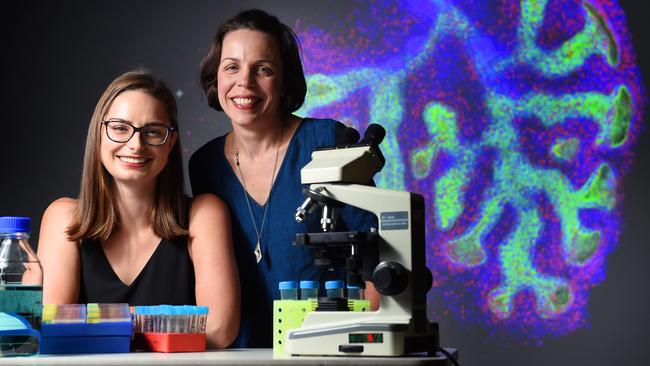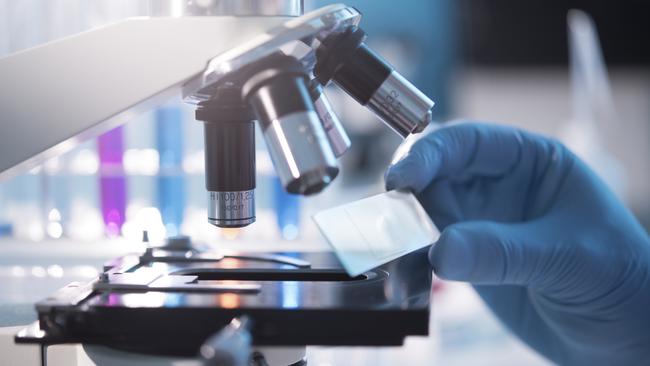Melbourne scientists discover trail of ‘breadcrumbs’ left behind by cancer cells that improve lung cancer detection and treatment
THE Melbourne discovery of a tiny trail of “breadcrumbs” left behind by cancer cells in the blood could be used to develop an early detection test for one of the country’s deadliest diseases.
News
Don't miss out on the headlines from News . Followed categories will be added to My News.
THE discovery of a tiny trail of “breadcrumbs” left behind by cancer cells in the blood could be used to develop an early detection test for one of the country’s deadliest diseases.
Findings of the Melbourne research could improve treatment for an aggressive and common type of lung cancer.
While the studies are in the preclinical stage, Walter and Eliza Hall Research Institute scientists are hopeful these findings can eventually be used to help doctors work out the best treatment for patients.
WORLD-FIRST BLOOD TEST DEVELOPED
LUNG CANCER DEATHS HIGH AMONG INDIGENOUS VICTORIAN
HIGH-RISK AUSTRALIANS TO UNDERGO EARLY LUNG CANCER SCANS
Dr Kate Sutherland said the breadcrumbs were unique molecular signatures in the blood left behind by the cells.
If the same markers found in animal models are also present in humans, it could form the basis of a blood test for lung adenocarcinoma, which accounts for about 40 per cent of lung cancers.
This aggressive and difficult cancer occurs in smokers but is also the most common form diagnosed in nonsmokers.

It had been known that more than one in five of these tumour types have mutations in two cell-signalling pathways, but for the first time researchers have shown they cause the cancer, allowing them to grow and limiting their stress levels.
“We were able to show that these two pathways were actually key in driving the tumours to form,” Dr Sutherland said.
“We can now investigate whether we can target these pathways to develop treatments for this type of cancer.”
Together with Bio 21 Institute at the University of Melbourne, Dr Sutherland and WEHI colleague Dr Sarah Best found this type of lung cancer tumour responded well in the laboratory to two types of immunotherapies.

These treatments fire up the immune system to kill cancer cells. They are already used to treat other types of cancer and are in clinical trials for lung cancer. “These tumours are chemotherapy and radiotherapy-resistant, meaning there are effectively no current treatments for these patients,” Dr Best said.
There’s also no early detection test or screening tool for lung cancer, such as for breast or cervical cancer.
Lung Foundation Australia CEO Heather Allan said the research was an exciting step forward toward improving the very low survival rate for lung cancer. Only 5 per cent of patients are alive five years after diagnosis.
“This can be attributed to the majority of lung cancer cases being detected at a late stage, after the cancer has already spread,” Ms Allan said.


